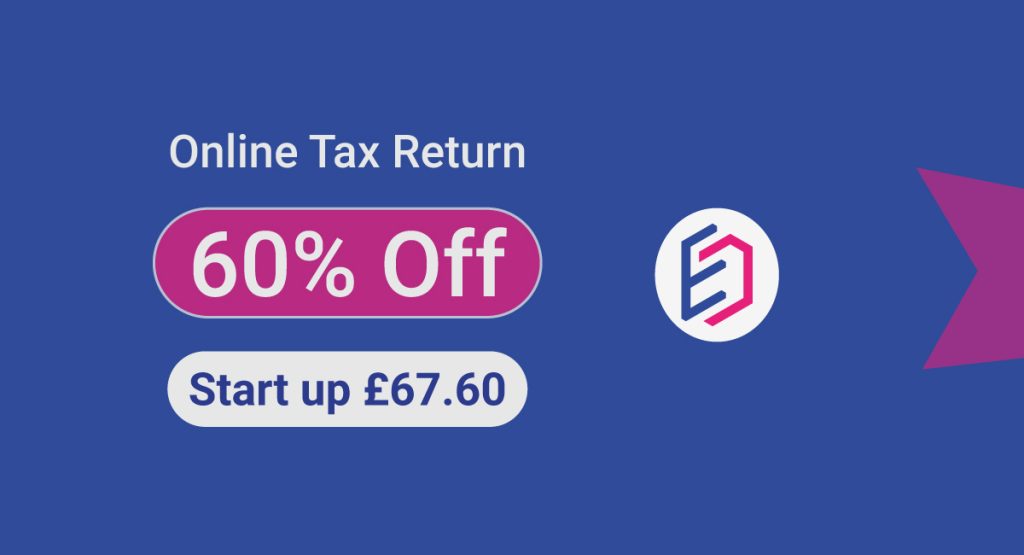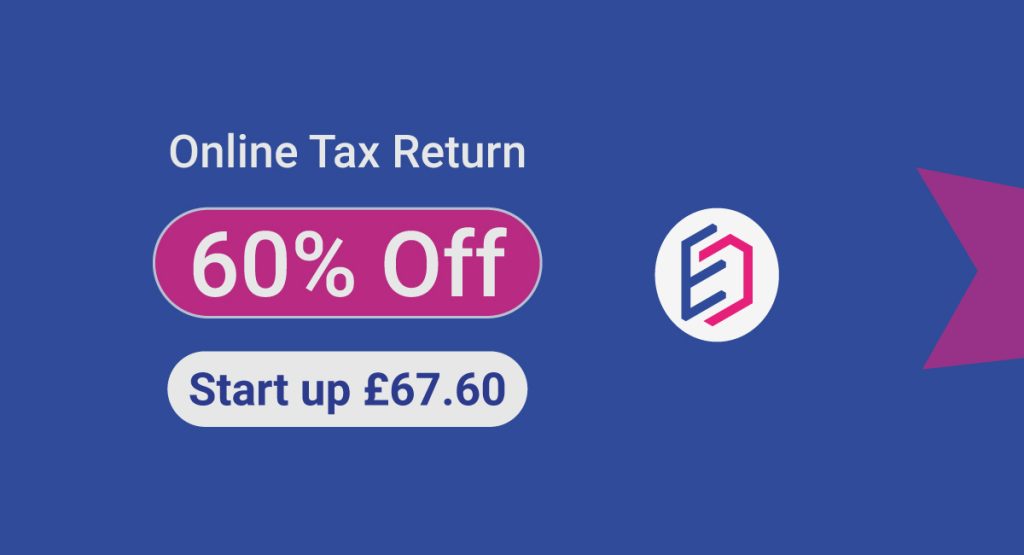Know Your Self Assessment Deadlines Before It’s Too Late
When is self assessment tax return due? If you’re self-employed, a landlord, a high earner, or anyone with untaxed income, this is a question you can’t afford to ignore.
Every year, thousands of UK taxpayers miss the self assessment deadline — and face penalties that could’ve easily been avoided. Whether you’re running your own freelance business, earning rental income, or receiving dividends, knowing exactly when to file and pay your tax is essential.
The good news? You’re not too late. But there are two key dates you need to remember:
- 31 October – Deadline for paper tax returns
- 31 January – Deadline for online filing and paying your tax
In this guide, we’ll break down what these dates mean for you, who must file, how to do it properly, and what happens if you miss the deadline.You should file your taxes early to avoid any late penalties.
Key UK Tax Deadlines You Shouldn’t Miss for Self Assessment
Thinking of filing a self assessment tax return? Don’t miss these three key UK deadlines that could cost you if ignored.
Each one affects your filing method and your tax payments.
What’s the Deadline for Filing an Online Self Assessment Return?
Remember, to avoid penalties, be sure to submit your online self-assessment by 11:59 PM on January 31, after the end of your tax year.
For example, for the 2023/24 tax year (which ended 5 April 2024), you must file online by 31 January 2025.
This deadline applies to:
- Self-employed individuals
- Freelancers and sole traders
- Landlords with rental income
- High earners or those with untaxed income
- Company directors (non-PAYE)
Failing to meet this date can lead to automatic late filing penalties. Even if you have no tax to pay, you must still submit on time if HMRC requires it.
Tip: File early. HMRC’s system gets overwhelmed in January.
When is the deadline for paper returns?
if you’re sending a paper tax return, make sure HMRC gets it by midnight on 31 October — no exceptions.
This deadline is much earlier than the online filing deadline. Miss the paper deadline? Then your only option is to file online instead.
You should use a paper return if:
- You can’t access or use HMRC’s online system
- You’re filing for someone who has passed away
- You’ve received a paper SA100 form from HMRC
Important: HMRC is phasing out paper returns for most users. Filing online is faster and safer.
When is the tax payment deadline?
You’ll need to pay your self assessment tax bill by 31 January — that’s the same deadline as your online tax return.
This payment usually covers:
- Any tax you still owe for the last tax year
- Your first advance payment (‘payment on account’) towards this year’s tax bill, if required
If you delay payment, HMRC will charge interest from 1 February, plus late payment penalties after 30 days.
Quick tip: Log in to your HMRC account to view your bill and pay it safely online.
Missed the Self Assessment Deadline? Here’s What It Might Mean for Your Wallet
Missing the self assessment deadline doesn’t just bring stress — it can lead to late penalties, interest charges, and HMRC scrutiny.
Even if you owe nothing, HMRC may still fine you.
Late filing penalties explained
If you miss the 31 January online filing deadline, HMRC issues an automatic £100 penalty — even if no tax is due.
Here’s how the late filing charges build up:
- £100 fine as soon as you’re one day late
- After 3 months: £10 per day (up to 90 days)
- After 6 months: Additional £300 or 5% of tax due
- After 12 months: Another £300 or more
These penalties apply on top of your actual tax bill.
Tip: File your return early — even if you can’t pay right away.
Late payment penalties and interest
If you don’t pay your tax by 31 January, interest starts building from 1 February.
Here’s what happens:
- HMRC charges daily interest (currently 7.75%) on unpaid tax
- After 30 days: 5% late payment penalty
- After 6 months: Another 5% added
- After 12 months: A further 5%
The longer you delay, the more you’ll owe.
Tip: Paying something is better than paying nothing. It reduces penalties.
Can I appeal or avoid a penalty?
Yes, you can challenge a penalty — but only if you’ve got a valid reason HMRC will accept.
They might consider excuses like:
- Serious illness or hospitalisation
- Bereavement close to the deadline
- Issues with HMRC’s online service
- Natural disasters or postal delays
You must appeal within 30 days of receiving the penalty notice. Keep records to support your claim.
Tip: Don’t rely on excuses — file and pay on time to avoid the stress.
Who did the UK actually urge to file self- assessment tex returns?
In the UK, self assessment isn’t for everyone—only specific individuals are required to submit one.But if you fall into certain categories, filing is not optional.
If you are a sole trader or a freelancer – i.e. self-employed – who earns more than £1,000 a year, you will need to register and submit a tax return.
This also applies if you’ve just started a side hustle or small business — even part-time.
Landlords who earn rental income from letting out property must also file. It doesn’t matter if the property is furnished or unfurnished, or if it’s just a room in your own home. If you earn more than £1,000 annually in rental income, self assessment rules apply.
People who receive untaxed income, like dividends, interest on savings, or profits from selling assets, also need to report it. This includes income from crypto assets or earnings from abroad.
If you earn more than £100,000 a year, you’ll need to file a self assessment tax return—even if your income is fully taxed through PAYE.HMRC needs to assess if additional tax or adjustments apply, especially if you’ve lost personal allowance entitlement.
Company directors usually don’t need to file if they only earn PAYE income. But if they receive income from other sources, like dividends or consultancy work, they’ll need to submit a return too.
Always check your personal situation. If HMRC sends you a notice to file, you’re legally obligated to submit — even if you believe you don’t owe tax.
What If You Need More Time or Help?
Things can get busy, and it’s totally normal to need a bit more time to sort out your self assessment.While HMRC won’t extend the official deadline without a valid reason, there are still ways to manage the pressure.
If you think you’ll miss the deadline, it’s important to still file as soon as you can. Even one day late triggers a £100 fine, so don’t delay unnecessarily.HMRC will only waive the penalty if you have a valid reason they accept as reasonable. A reasonable excuse could be a sudden illness, a bereavement, or a serious technical issue. You must explain this clearly when you appeal and provide evidence where possible. You need to appeal within 30 days of getting a penalty notice to have a chance of reversing it.If your tax bill is too much to pay at once, you may be eligible for a Time to Pay arrangement. This lets you spread the amount owed into affordable monthly payments based on your situation.
If you owe less than £30,000 and are within 60 days of the deadline, you can arrange a payment plan online.For larger debts or longer terms, you’ll need to speak directly with HMRC. Avoid ignoring the issue — interest and late penalties will only grow.
If you’re not confident about filing or working out your tax, expert support can make a big difference. HMRC also provides step-by-step guides, helpful videos, and dedicated helplines to walk you through the process.
A Simple Step-by-Step Guide to Help You File Your Self Assessment Tax Return with Confidence
Filing a self-assessment tax return may seem daunting to you, but with a little planning ahead, it becomes easier than you might expect.
If it’s your first time filing, start by registering for self assessment on the official HMRC website.
Once you sign up, HMRC will send you a Unique Taxpayer Reference (UTR) by post. This number is very important. You will need it when you fill in your tax return. So be sure to keep it safe and secure!
Keep it safe—you’ll need it to file your tax return properly.
Once you’re registered, the most common method is to file online using HMRC’s digital services.
Your first task is to set up a government gateway account, through which you can file your tax returns online.
The online system guides you through each section step-by-step, asking about your income, expenses, and other financial details.
If you prefer not to file online, you can send in a paper tax return instead. Just remember—the deadline for paper forms is earlier, on 31 October.
Most people now choose the online method because it’s quicker, safer, and includes instant confirmation.
Many individuals — especially sole traders, landlords, or those with complex income — choose to file using accounting software or through a tax advisor. This ensures your figures are accurate and helps you claim allowable expenses correctly. You remain legally responsible for the return, even if someone else files it for you.
Before submitting, double-check everything. Mistakes can cause delays or unwanted HMRC attention. Once it’s done, don’t forget to pay your tax bill by the 31 January deadline to avoid interest or penalties.
Key Takeaways – What You Need to Remember
Self assessment deadlines are strict, and missing them can be costly. With a little planning, staying on top of your self assessment can be simple and stress-free. The key date you really need to remember is 31 January.
This is when your online tax return is due and when your tax must be paid. Missing this date triggers.If you’re going with a paper tax return, remember—the deadline comes around quicker, on 31 October.
late filing and payment penalties.
You can mark the date on the calendar to do the task better and set a reminder so you don’t miss it. This is definitely a good idea.
HMRC won’t accept late paper returns unless you have a valid excuse.
Don’t forget — if you’re self-employed, a landlord, a high earner, or have untaxed income, filing is a must.Even if you think you don’t owe tax, submit your return if HMRC asks.
Need support? Don’t leave it to the deadline rush. It’s a good idea to chat with a qualified accountant or get in touch with HMRC directly for help.
Filing early not only reduces stress—it also gives you clarity and confidence about what you owe.
Stay organised, file on time, and keep HMRC penalties far away.
FAQs – When is Self Assessment Tax Return Due in the UK?
Many people have common questions when it comes to self assessment tax deadlines—here are some of the most asked.
If you’re confused, you’re not alone — and we’re here to make things simple.
When is the deadline to submit my online self-assessment tax return?
You must file your self-assessment tax return online by 11:59 PM on January 31st after the relevant tax year ends. Missing this deadline could result in penalties, so it’s best to submit your return well in advance to avoid last-minute issues.
For example, if you’re filing for the 2023/24 tax year (which runs from April 6, 2023, to April 5, 2024), your online submission must be completed by January 31, 2025.
Remember, if you miss the deadline, you may face an automatic fine, so mark the date and file on time!
What’s the deadline for sending in a paper tax return?
HMRC needs to receive your paper tax return by 31 October. If you’ve missed the deadline, don’t stress—just submit your tax return online right away to avoid bigger penalties.
This deadline is earlier than most people realise, so plan ahead.
Do I need to file a tax return if I don’t owe tax?
Yes, in some cases—like if you’re self-employed, HMRC requested one, or you earned untaxed income (e.g., rentals or side gigs over £1,000). Otherwise, you might not need to. When in doubt, check with HMRC!
What are the consequences if the self-assessment deadline is missed?
If you miss the deadline, you could face fines, interest on any tax owed, and added stress from late penalties.
Can I file my return before the deadline?
Absolutely — and it’s a smart move. Submitting your tax return early helps reduce stress and gives you more time to manage your payment. You can even pay later,as long as it’s before 31 January.
Do I need to pay my tax when I file my return?
Yes, of course you must pay any taxes you owe by January 31, which is essentially the same deadline as filing your tax return.
This includes your full tax bill and, in some cases, a “payment on account” for next year’s tax.
What if I can’t pay all my tax at once—can I set up a payment plan?
Yes, HMRC’s Time to Pay service lets you spread your tax payments into monthly instalments. You will only be eligible to apply online if your tax bill is less than £30,000.
Final Thoughts – Don’t Let the Self Assessment Deadline Catch You Out
The self assessment deadline isn’t just a date — it’s a serious financial checkpoint. Missing it could cost you money, time, and peace of mind.
Whether you’re self-employed, a landlord, or a high earner, filing on time matters. Don’t wait until January’s last minute. If you file your return early, you may need a little more time to plan payments, correct mistakes, or seek help.
Tax doesn’t need to be stressful. With the right guidance and tools, you can stay compliant, avoid penalties, and focus on your business or income.
How to get started? If you have no specific ideas, we are ready to guide you every step of the way.
Whether you need help filing, understanding your tax bill, or setting up a payment plan — our experts are ready.
Need expert help with your self assessment?
Contact Eternity Accountants today for personalised support and stress-free filing.
Let’s get it sorted — before the deadline hits.




